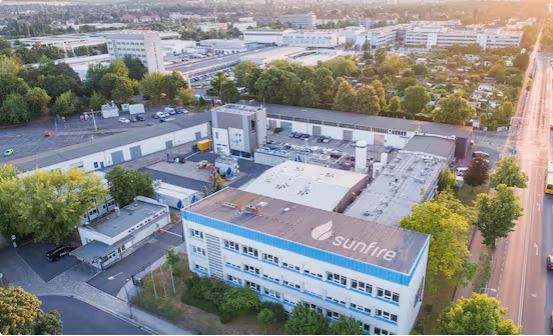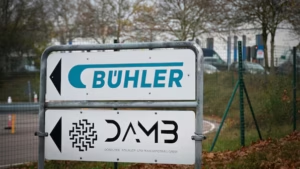Dresden. Das Dresdner Elektrolyse-Unternehmen Sunfire sichert sich 200 Millionen Euro, damit es neue Aufträge ausführen und wachsen kann. Ein Großteil der Finanzierung wird durch Steuergelder abgesichert.
Nach Unternehmensangaben wird die Finanzierung von einem Zusammenschluss unter Führung der Commerzbank und weiteren deutschen und europäischen Geschäftsbanken bereitgestellt. Zu dem Zusammenschluss gehören auch die Société Générale, die BNP Paribas, die Landesbank Baden-Württemberg (LBBW) und die Ostsächsische Sparkasse Dresden.
„Weiterer Meilenstein“ für Sunfire
Die Finanzierung markiere sowohl seitens der Banken als auch seitens der Politik einen starken Vertrauensbeweis in die industrielle Leistungsfähigkeit und die finanzielle Tragfähigkeit von Sunfire, heißt es. Die Zusage stelle einen „weiteren Meilenstein“ für Sunfire und die gesamte Elektrolyse-Industrie dar.
Mit dem Geld werden Kundenanzahlungen sowie Vertragserfüllungs- und Gewährleistungsverpflichtungen abgesichert. Der Betrag wiederum wird zu 80 Prozent durch Ausfallbürgschaften des Bundes und des Freistaats Sachsen – also mit Steuergeldern – abgesichert. Die übrigen 20 Prozent tragen die Banken selbst. Die Laufzeit der Finanzierung beträgt fünf Jahre.
Der Elektrolyse-Spezialist kann mit den zugesicherten 200 Millionen Euro industrielle Projekte und Kundenaufträge absichern und erhaltene Anzahlungen effektiv für die Fertigung von Elektrolyseuren einsetzen – ohne eigene Mittel für Sicherheiten zu binden, heißt es.
Sunfire-Finanzvorstand: „Ein Signal, dass Deutschland entschlossen ist“
„Mit der Garantielinie können wir nicht nur bestehende Projekte umsetzen, sondern auch die industrielle Skalierung mit unseren eigenen finanziellen Mitteln vorantreiben“, sagtFrank Posnanski, Finanzvorstand von Sunfire. „Diese Unterstützung zeigt, dass Vertrauen in junge Unternehmen und zukunftsweisende Technologien gesetzt wird. Es ist ein Signal, dass Deutschland entschlossen ist, seine Industrie nachhaltig und zukunftsfähig aufzustellen.“
Sunfire ist ein weltweit führendes Elektrolyse-Unternehmen, das industrielle Elektrolyseure entwickelt und produziert. Damit kann grüner Wasserstoff und Synthesegas als klimaneutraler Ersatz für fossile Energie bereitgestellt werden. Das ist für industrielle Bereiche wichtig, die heute noch von Öl, Gas oder Kohle abhängig sind. Das Unternehmen beschäftigt eigenen Angaben zufolge mehr als 650 Mitarbeitende an Standorten in Deutschland und der Schweiz.
SZ








